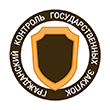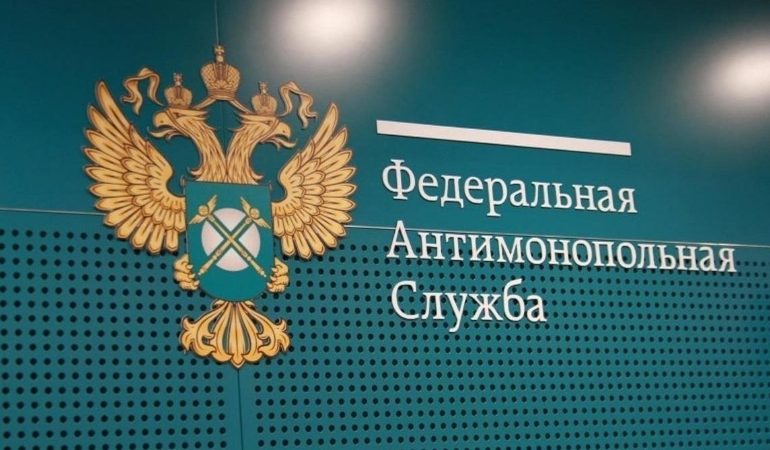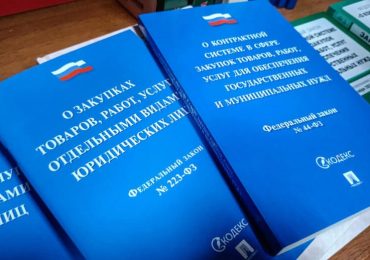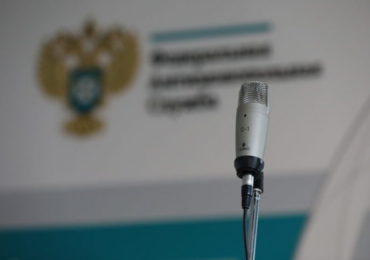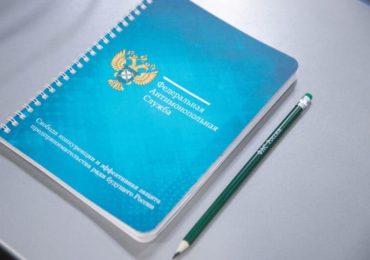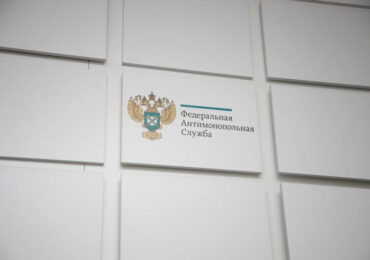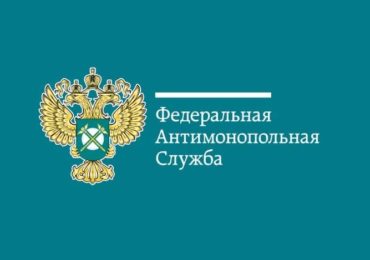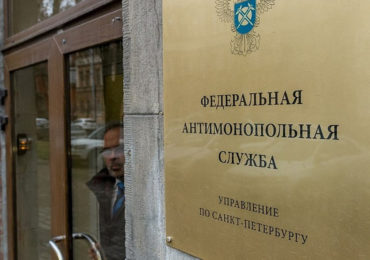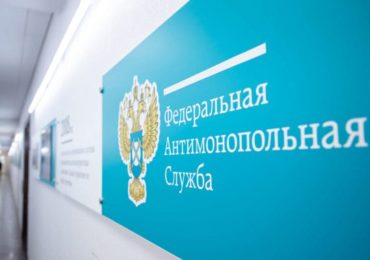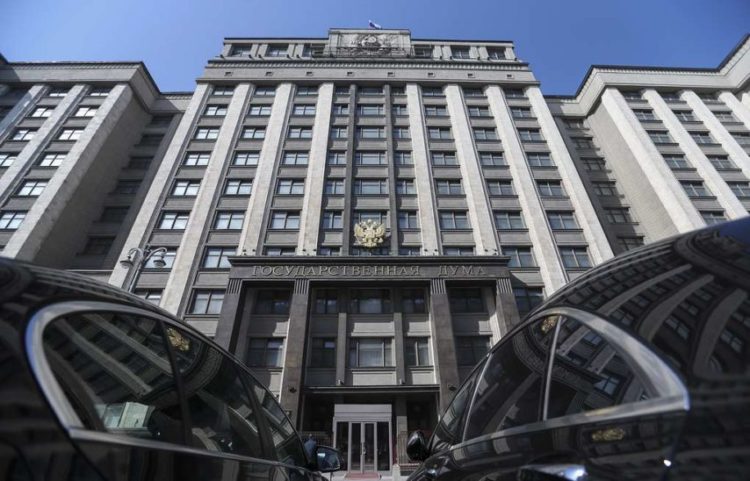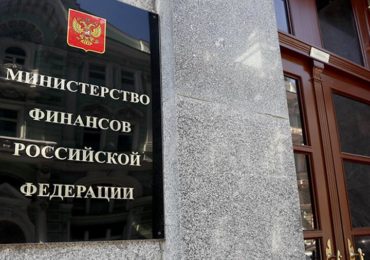Federal Antimonopoly Service (the FAS Russia) is an authorized federal executive body, which is carrying out its functions with regard to the approval of the regulatory legal acts and control over compliance with the antimonopoly legislation, legislation in the field of natural monopolies’ activity, in the field of state regulation of prices (tariffs) for the goods (services), advertising, foreign investments in the business entities of strategic importance for the Russian national defence and state security, control in the field of state defence order, purchases of goods, works and services for the state and municipal needs and procurement of goods, works and services by certain legal entities, as well as with regard to the approval of closed methods for selection of suppliers (contractors, performers).
Unlike the MAP Russia, the FAS Russia directly subordinates to the Government of the Russian Federation, but is not a part of it. On the one hand, it downgrades the status of the FAS Russia in comparison with the previous one. On the other hand, because the FAS Russia is empowered to control over relevant activities of public authorities, this fact provides an opportunity for competition authority to be more independent while initiates the proceedings against public authorities, first of all, federal ones. Thus, at present time the FAS Russia is a multifunctional authority, which, along with its 84 Regional Offices, exercises a wide range of functions differ greatly from the competences of “classical” competition authority.
The FAS Russia at the modern stage
The FAS Russia today has a number of competences, which gives a synergetic effect in practice, despite of its quantity and, from the first glance, relative mismatch. They design an effective base for creation of competitive economy. By the beginning of IV quarter of 2014 the FAS Russia exercises the following functions:
• State regulation over compliance of economic entities with the competition law;
• Control over observing competition rules by the authorities, including control over state preferences (state aid);
• Control over public procurement, including the sphere of defense and security;
• Control over natural monopolies’ activity (excluding tariff regulation);
• Control over allocation of property, resources, rights on a competitive basis stipulated in the sectoral legislation;
• Control over advertising law compliance;
• Control over trade legislation compliance;
• Control over foreign investments in strategic industries;
• Control over unfair competition;
• Control over compliance with competition rules in the sphere of intellectual property;
• Specific control functions in defense industries and electricity sector.
The wide range of competences of the FAS Russia allows to react quickly to the appearance of anti-competitive practices in many sectors: trade, commodity exchanges, advertising, activity of public authorities in all the economic spheres, including security and defense, natural monopolies and financial markets. All these spheres are core for effective market functioning and creation of competitive environment.
The FAS Russia is not limited with exercising functions on control and supervision over compliance with legislation; it actively participates in development of sectoral and functional policies on many markets, promoting their pro-competitive orientation.
As for the decision-making process, the FAS Russia is the only authority in Russia empowered with control over compliance with antimonopoly legislation in all the economic spheres without any exceptions. The FAS Russia is an authority of the “full range”, responsible for dealing with complaints and appeals, collection of evidences, decision making, issuing notifications and prescriptions, control over execution of previously issued prescriptions, imposing administrative sanctions, protection of state interests on the cases of violation of the antimonopoly legislation in courts.
In the process of expanding of functions of the FAS Russia, the internal structure of the authority also needs to change. At present, the FAS Russia’s structure consists of sectoral and functional divisions. Depending on the priorities of the activity, new departments are created in the structure of the FAS Russia. For example, in 2008 fighting against cartels was proclaimed as one of the most important activity of the competition authority. Aiming at execution of this function in the most effective way, a new structural department was created – Anti-cartel Department.
Nowadays the process of competition development in the Russian Federation goes very fast. The Government of the Russian Federation adopts new policy documents specifying this process. The decree of the Government of the Russian Federation № 2579-r “On adoption of Plan of actions (“road map”) Competition development and improvement of antimonopoly practice” was adopted on December, 28 in 2012. The subject of the “Road map” is activities in the framework of so-called national entrepreneurial initiative, and have a special importance for competition development. The list of activities of the “road map” includes that ones which could influence the institutional design of the authority. For example, implementing a settlement system in regard to decisions of Regional Offices; realization of a pilot project on distant consideration of cases of violations of the antimonopoly legislation.
In the framework of execution of this document a special attention was paid to competition development and stimulation of pro-competition activity of regional authorities of the Russian Federation. With this aim the FAS Russia created “white and black books” of pro-competitive and anti-competitive regional practices. Relatively, the White book includes the best practices of regional and municipal authorities, the Black book – the worst practices of anti-competitive nature. These “White and Black books” are publicly available in the Internet. Publication of such a data helps to reduce the number of violations of the antimonopoly legislation by public authorities and stimulates their pro-competitive activity. “White and Black books” is an important activity of competition authorities connected with competition advocacy. It helps Regional offices of the FAS Russia to unify enforcement practice and to disseminate examples of the most interesting pro-competitive initiatives.
One of the major tools of implementation of the best practices of competition development in the regions of the Russian Federation is the elaboration of the Standard of Competition Development in the regions of the Russian Federation. The Standard was developed with participation of the FAS Russia and Ministry of economic development of the Russian Federation and adopted by the Government of the Russian Federation. In 2014 the Standard was incorporated in a number of regions. It is planning to implement the Standard in all the Russian regions in 2015. This is a document which describes new work of regional governments on development of competition should be done: how to set priorities and goals of development, how to elaborate indicators of development, how to organize and institutionalize cooperation with the main stakeholders.
One of the tools of implementing regional competition policy is agreements on cooperation signed between higher regional authorities and the FAS Russia. These agreements aim at creation of conditions for competition development on commodities markets. Agreements assign mutual consultations, working meetings, workshops and information exchange aiming at elimination of administrative barriers and effective functioning of commodities’ markets. Moreover, Agreements assign cooperation in the sphere of public procurement contracts for public and municipal needs, also in the sphere of control over activity of natural monopolies. By October, 2014 the FAS Russia has signed 29 such agreements.
Such agreements are signed with a number of federal executive authorities. A part of them allows only the exchange of information and participation in specific events while some of agreements clearly define mechanisms of cooperation in the process of execution of some functions (for example, agreements with the Ministry of Internal Affairs of the Russian Federation, Investigative Committee of the Russian Federation define the order of joint actions in conducting down raids, investigation of cartels and other dangerous violations).
Today the FAS Russia is an active partner in international cooperation. International cooperation with foreign competition authorities is one of the priorities of the current development of the FAS Russia. Increasing number of bilateral and multilateral agreements and memorandums nowadays goes into the sphere of practical cooperation. The FAS Russia conducted a number of international investigations on the facts of violation of the antimonopoly legislation along with foreign competition authorities. For example, the FAS Russia investigated the fish cartel case (on supply of pangasius from Vietnam to the market of the Russian Federation) with active support of Competition Authority of Vietnam. The case was initiated against number of Russian companies and the “Association of Production and Trade Enterprises on Fish Market” Non-Commercial Organization (the Association) upon signs prohibited coordination of economic activities of market agents. The FAS Russia suspects that the Association coordinated such activities of economic entities – competitors, which resulted in dividing the market among themselves the volumes of purchasing pangasius. The similar case was considered related to a number of salmon suppliers from Norway.
Moreover, nowadays the FAS Russia is an initiator of development and signing of International Convention “On Fighting against Cartels”.
The high valuation of the Russian competition authority proves that despite of a wide range of functions and limited resources, the FAS Russia could reach that condition when “non-classical” functions are not an excessive burden but make a synergetic effect. The process of development of institutional structure of the FAS Russia has an evolutionary nature, it changes and adapts facing new challenges of economic environment and tasks of public administration, taking in mind previous developments and achievements. Competition authority gains new functions, leaving the excessive ones. All the new functions are considered to be one more step towards effective authority’s activity.
Nowadays the FAS Russia is a powerful authority of antimonopoly control represented by the Central Office and 84 Regional Offices which have their own functions and competences. The FAS Russia as well as its Regional Offices are independent in decision-making. In the structure of public authorities the FAS Russia is reporting to the Government of the Russian Federation.
Because of the complexity of Russian economic system and appearance of new economic challenges, the FAS Russia is always in the process of actualization of current antimonopoly legislation. Today the lower chamber of Russian Parliament (State Duma of the Federal Assembly of the Russian Federation) considers a number of amendments to the current competition legislation (so-called “forth antimonopoly package”). These amendments, among others, clarify functions of competition authority. Among the legislative initiatives, there are those which change institutional design to some extent. For example, the empowerment of collegial body of the FAS Russia (Presidium and Appeal Collegium) with the function to revise decisions of Regional Offices and to adopt guidelines of antimonopoly legislation.
The powers and structure of the FAS Russia are changing not only under the influence of economic challenges, but also according with reforming the structure of the Russian government as a whole. Thus, the last example of the functional changes of the competition authority, became the delegation of power of the disbanded Federal Service for Defense Contracts (Rosoboronzakaz) in a part of pricing control in the markets of defense products and control tendering procedures for conclusion contracts on supply of products for the defense and security needs.
